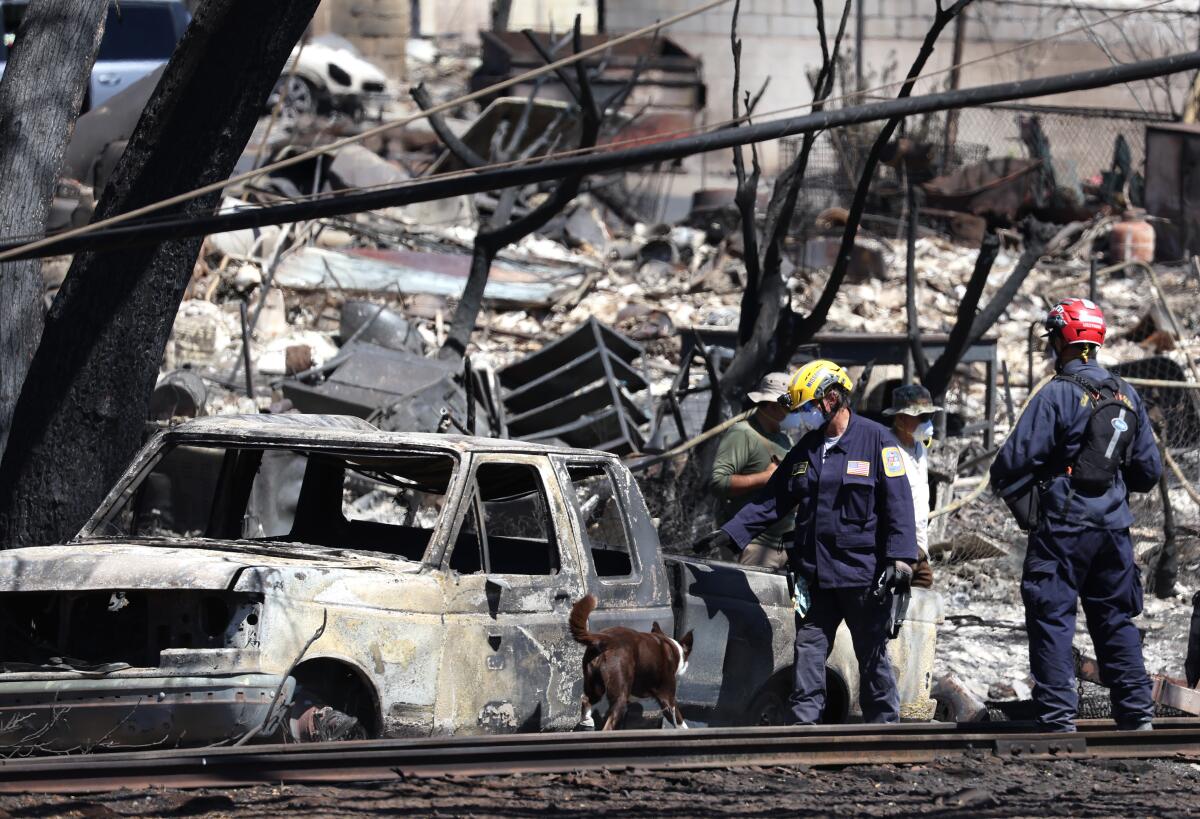Letters to the Editor: Climate change? Why ‘climate destruction’ is more accurate

- Share via
To the editor: Most people are unfamiliar with the Keeling curve, a graph that shows climate change in terms of the rise in atmospheric carbon dioxide over time.
Data on the graph going backward from the 1950s are taken from ice-core samples, a perfectly valid way of measuring past CO2. The graph from the 1950s on has been made by consistent daily CO2 monitoring. (“The climate crisis didn’t take a year off. California lawmakers shouldn’t either,” Sept. 6)
Amateur scientists are warned against automatically attributing correlation to causation. In this case, we know there’s causation.
CO2 comes out in exhaust when you burn fossil fuels. It is a heat-trapping gas, because it has carbon in it, which absorbs infrared radiation. This makes it unlike gases such as nitrogen and oxygen, which make up most of our atmosphere.
It’s dangerous to add CO2 to the atmosphere, but by now we’ve almost doubled it and counting.
“Climate change” implies that there’s a question about what’s going on or that the environment is doing this to itself. This phrase should be changed to “climate destruction.”
While we’re at it, the term “energy” implies that coal, oil, and gas are somehow like reusable, indefinite products. The term for these should be changed to “disposable energy.” Green energies should be re-termed “energy”; they’re the only nondisposable energy products on the market (and nondestructive).
Josh Savin, Los Angeles
..
To the editor: It’s true that climate change is an “existential threat” that “needs to be addressed by the whole world.” It’s also always been “very difficult to predict which kinds of [aquatic] species will increase.” (“Japan loves its sushi. But the fish are disappearing,” Aug. 23)
Instead of trying to revive a dying industry, the Japanese government would perform an actual public service by helping fishermen transition into profitable, humane, environmentally sustainable occupations.
However, we needn’t give up sushi. The word actually refers to rice seasoned with vinegar, and there are all types of marvelous vegan sushi.
Fishes and other animals served our species well when we needed to eat them in order to survive. Fortunately, that is no longer the case for most of us. Now those species are trying to survive, and we should show genuine appreciation and respect for them by opting instead from the diverse bounty of delicious, healthful vegan foods.
Mary Finelli, Bethesda, Md.
The writer is president of the advocacy group Fish Feel.




